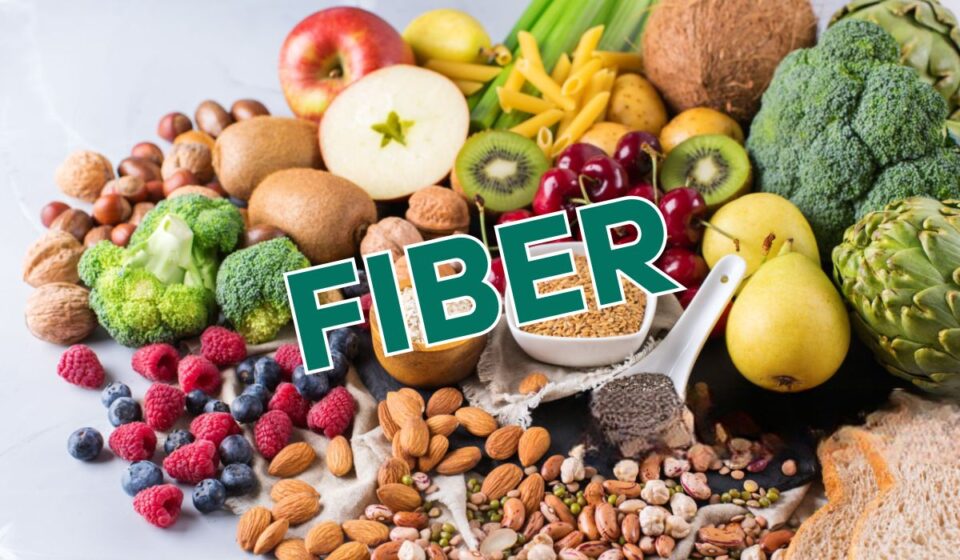Is Fiber the Missing Key to Weight Loss? A Nutritionist Explains
When trying to lose weight, most people focus on counting calories or tracking macros like protein, fat, and carbs. But there’s one powerful nutrient that often gets ignored — fiber. It may not get much attention, but fiber plays a major role in helping you feel full, stay regular, and even burn fat more effectively.
So, can fiber really help you lose weight? And is it better to get fiber from natural foods or supplements?
In this episode, a certified nutritionist answers all your top questions about fiber and weight loss, including:
How fiber supports digestion and fat burning
Why fiber-rich foods can reduce cravings and help you eat less
The difference between soluble and insoluble fiber
Whether fiber supplements are safe and effective
Simple ways to add more fiber to your daily meals
If you’ve tried dieting before but couldn’t stick to it, learning about fiber might be a game-changer. Whether you’re a beginner or just looking for smarter health tips, this podcast is packed with easy advice to boost your weight loss the natural way.
Most People Focus on Protein for Weight Loss — But Don’t Ignore This Powerful Nutrient
These days, the internet is full of tips about eating more protein — from 30g-protein breakfasts to protein shakes and snacks — all promising better weight loss. And it’s true: eating enough protein does help in losing weight and building muscle.
But there’s one important nutrient that many people forget — fiber.
Fiber doesn’t just keep your digestion smooth. It also helps you feel full longer, reduces cravings, and supports healthy weight loss naturally. While protein gets all the attention, fiber might be the missing piece in your diet plan.
Why Fiber Is Essential for Your Health — Not Just Digestion
Fiber does more than support digestion — it’s vital for your overall health. Studies have found that a fiber-rich diet can offer several key health benefits, including:
Lower bad (LDL) cholesterol
Reduce high blood pressure
Protect your heart from disease
Improve blood sugar levels
Support healthy weight loss
Recent studies also suggest that fiber may boost your insulin sensitivity, which can lower your risk of type 2 diabetes. Plus, fiber helps you feel full for longer, making it easier to control cravings and eat fewer calories throughout the day.
If you’re not eating enough fiber, you’re missing out on one of the simplest ways to stay healthy and manage your weight naturally.
Surprisingly, over 95% of people in the U.S. don’t get enough fiber daily. The recommended amount is about 34 grams for men and 28 grams for women. So, how can you add more fiber to your diet easily?
In this episode of In Conversation, we answer some of the most common questions about fiber: What exactly is fiber and why does your body need it? How can you know if you’re getting enough each day? And is it fair to call fiber “nature’s Ozempic” for weight loss and appetite control?
We’ll break down the two main types of fiber — soluble and insoluble — and explain how much fiber you really need each day, based on your age and lifestyle. You’ll also learn how fiber supplements like psyllium husk stack up against fiber from natural foods. Plus, we’ll explore how fiber can help fight insulin resistance and support healthy weight loss over time.
Top High-Fiber Foods You Should Eat Daily for Better Health
Looking to boost your fiber intake? Here are some of the best fiber-rich foods to add to your meals for better digestion, weight control, and overall wellness.
Frozen berries are a great source of fiber — sometimes even more than fresh ones. They’re affordable, last longer, and are super easy to use. You can toss them into smoothies, stir them into oatmeal, or mix them with yogurt for a fiber-rich boost.
Brown rice has just a little more fiber than white rice — about one extra gram. But whole wheat pasta is a much better choice. It has a lot more fiber and makes a great base for healthy meals when you add veggies or lean protein on top.
We love adding chia seeds to my oatmeal, but they’re also great for making chia pudding. Just soak them in milk or a plant-based milk, add some fruit, and you’ve got a fiber-rich, filling snack.
Chia seeds may be tiny, but they’re packed with powerful nutrients. They’re packed with fiber, rich in omega-3 healthy fats, and also give you a small dose of plant-based protein, all in one tiny seed. This combination helps keep you full for longer, supports heart health, and keeps your digestion on track.
We feel like they’re a small but mighty superfood,” we adds. We check off a lot of nutrition boxes in one go. If you’re just starting to add more fiber to your diet, chia seeds are one of the easiest and most versatile foods to begin with.”
You can add them to smoothies, sprinkle them on toast with nut butter, or even bake them into healthy snacks. Chia seeds are affordable, easy to store, and fit into almost any diet — making them a top pick for boosting your daily fiber intake naturally.

